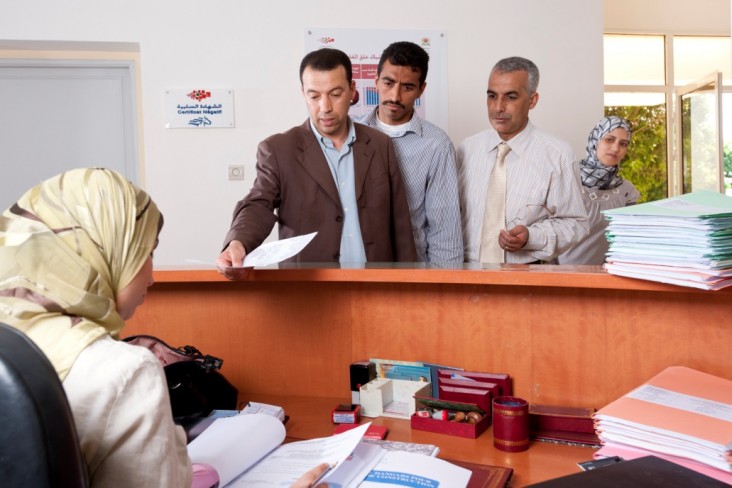
Globally, the Middle East and North Africa have the lowest rate of interregional business and trade. The area is also challenged by high unemployment rates, young populations out of work and slow economic development. Developing environments favorable to starting businesses and supporting an entrepreneurial culture is key to the Middle East and North Africa’s growth and stability.
In early 2013, the governors of the Oriental and Doukkala Abda regions, two zones served by the USAID Morocco Economic Competitiveness (MEC) program, launched regional business environment commissions to push forward reforms. As with the national business environment commission created in 2009, the regional commissions, to be known as "CREA" (Comités Regionaux de l’Environnement des Affaires), will be public-private bodies with a mandate to reduce regional barriers to trade and investment.
Even though laws and regulations governing investment are the same in all 16 regions of Morocco, administrative practices differ. USAID’s MEC program conducted a survey on business environments revealing that, for the same procedure, for example, registering a new business, processing time can be as much as three times longer in one region of Morocco than in another. Clearly, some regions are more efficient than others in creating a business environment.
The regional bodies were created two and a half years after the MEC program began its work and demonstrated the importance of taking a regional approach to improve the business environment.
“We have to keep in mind a very simple question: What will make an entrepreneur from Fès, Marrakech or from Barcelona decide to come invest in our region?” says Ali Belhaj, president of the Oriental Regional Council.
Through MEC, USAID has been collaborating closely with regional public and private stakeholders to streamline key administrative procedures such as building permit applications and business startup processes.
“We think that this regionalized approach to creating favorable business environments will allow us to be closer to businesses and to investors. The CREA will be an effective tool,” said Mohamed Najib Boulif, minister of general affairs and governance in Rabat, Morocco.
Recognizing the potential benefits of a regional commission, the region of Rabat-Salé-Zemmour-Zaërs is expected to create its own CREA. The Government of Morocco has also indicated that it plans to issue a decree that all regional governors establish CREAs by the end of 2013.
As the MEC program closed at the end of summer 2013, the national initiative will be a fitting conclusion to USAID efforts to improve regional business environments for Moroccan businesses.







Comment
Make a general inquiry or suggest an improvement.